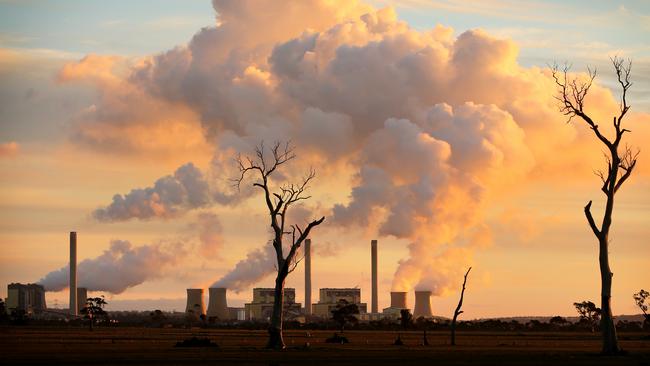Cabinet archives: Early green shoots in emissions trading war
John Howard’s cabinet agreed at the turn of the millennium to look at ways industry could obtain credits for early greenhouse gas abatement as insurance against a possible ETS.

John Howard’s cabinet agreed at the turn of the millennium to look at ways industry could obtain credits for early greenhouse gas abatement as insurance against a possible emissions trading scheme, with a feasibility study into an ETS under way.
Cabinet records from 2000, released by the National Archives on Friday, reveal the Howard government’s lengthy discussions on what negotiating position Australia should take to the sixth session of the Conference of the Parties (COP6), where the Kyoto Protocol’s implementation was top of the agenda.
By November, cabinet had agreed in-principle to develop a system that would provide credit for early greenhouse gas abatement action in Australia, which had signed up to the Kyoto Protocol.
Former environment and heritage minister Robert Hill said key elements of the protocol were still being finalised and until they became clearer the challenge was to position the economy “as favourably as possible for the prospect of future emission constraints”.
“I propose that the commonwealth respond to industry concerns by developing voluntary arrangements whereby industry could earn officially sanctioned early action ‘credits’ that could be used to offset potential emission liabilities in the first commitment period,” he wrote in a cabinet submission.
“These credits would be recognised by the Australian government as offsets to potential future liabilities under an emissions trading system (or an economy-wide tax), linked to binding Kyoto Protocol commitments.”
The Department of Prime Minister and Cabinet said it was too early to give in-principle agreement to establish such a system.
Cabinet also agreed that Australia work at COP6 to achieve a package “which minimises the cost of implementing the Kyoto Protocol and the impact on Australian trade competitiveness”.
In May 2000, cabinet noted that reduced rates of land clearing and increased rates of revegetation appeared critical to the achievement of Australia’s Kyoto Protocol target.
Two decades later, Scott Morrison declared Australia was “very confident” it would achieve its 2030 emissions reduction targets without relying on Kyoto carry-over credits.
Mr Howard campaigned for an ETS at the 2007 election, as did his Labor opponent, Kevin Rudd, but the scheme ultimately claimed the Liberal leadership of Malcolm Turnbull in 2009 and never eventuated.


To join the conversation, please log in. Don't have an account? Register
Join the conversation, you are commenting as Logout